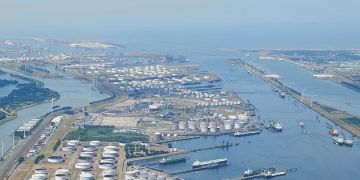TT Club pointed out that there are alarming warning signs that severe climatic events are already impacting inland waterway operations.
According to TT Club, in 2024 European waterways continued to experience significant disruption to cargo transport. In June the Rhine suffered from extreme weather conditions with torrential rain leading to severe flooding in southern Germany. Cargo handling was interrupted to/from Switzerland and caused substantial delays in inland traffic between the Lower and Upper Rhine.
Additionally, 2024 was the hottest year on record globally. Reinsurer Swiss Re reported natural catastrophe losses exceeding US$100 billion for the fifth year in succession and with thirty-seven events recording losses over US$1 billion the prior year as reported by the Financial Times, from extreme weather. Estimates forecast that insured losses could double within the next ten years.
Furthermore, increased droughts have led to record low water levels on major rivers with some vessels carrying only 25% of their usual load to avoid running aground and causing delays. Shipping lines have had to switch cargo from river to rail to maintain connections between industrial regions and the ports.
Climate change effects on river navigation are significant as it is highly sensitive to changes in weather patterns and long-term climate trends.
…said Neil Dalus, Loss Prevention Department, TT Club.
Dalus continued by commenting that this challenge highlights the vulnerability of Europe’s inland waterway transport system, emphasizes the need for infrastructure improvements and planning for risk mitigation and workforce training to ensure operational resilience.
TT’s historical data points to an continuing rise in claims from weather-related losses over the last ten years. These result from numerous types of damage from navigational and berthing accidents to collapse of cranes and port equipment collisions to container stacks blowing over, and of course flood damage to buildings and infrastructure.






























































